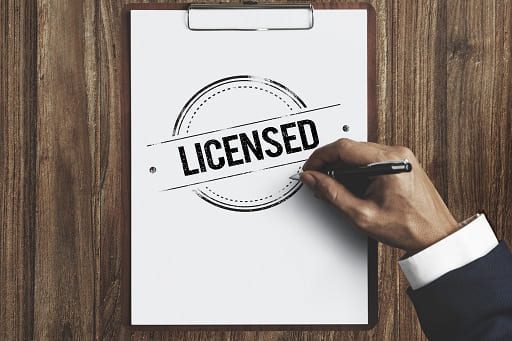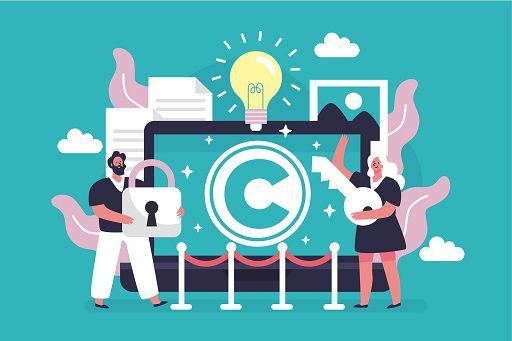Types of patent licensing: How to choose the right one for you?
Patent law can be pretty confusing, but when it comes to licensing patents, there are only three types of agreements. Read on to find out what they are and which one might be right for you.
What is a Patent License?
If you’ve ever released a great invention and wanted to make sure everybody knew it was yours, then a patent license is the key!
In general terms, a patent license grants you exclusive rights to your invention, so it can’t be reproduced by anyone else. He or she who holds the patent license also has the legal ability to sue someone else for infringing on their rights.
Some inventors may choose to keep their creations for themselves. However, others may opt for a patent license which enables them to share their idea with the world whilst protecting its ownership. The potential benefits of this could make it worthwhile for any inventor looking for recognition and rewards along the way!
Main Types of Patent Licenses
There are three main types of patent licenses. Here’s a rundown of each type:
Exclusive Licenses
An exclusive license grants the licensee (the party being granted the license) the sole right to practice the patent throughout the world. The licensor (the party granting the license) cannot practice the patent during the term of exclusivity and cannot grant sublicenses.
Exclusive licenses are limited in time and territory. Also, they are also nontransferable, which means they can’t be sold or inherited by someone else.
Non-exclusive Licenses
A nonexclusive license grants a licensee permission to practice a patent without having exclusive rights. The licensor can also grant this same permission to other parties (hence why it’s called a “non-exclusive” license).
This type of agreement is often used when multiple products use the same technology covered by different patents held by different companies. That’s the case, for example, of Wi-Fi or Bluetooth technologies. In these situations, companies must share patents, so they don’t block each other from offering competing products.
Co-exclusive Licenses
A co-exclusive license allows two or more parties to have exclusive rights within their specific markets or territories. For example, two pharmaceutical companies could be granted co-exclusive licenses for different drugs that treat the same condition. But, they could be geography-specific: one company in Europe and one company in North America.
Co-exclusive licenses are transferable. However, they can only be sublicensed together by the original co-exclusive owners.
Which Type of License Should You Choose?
Choosing which type of license is best depends on your business goals and objectives. If you want complete control over how your patented invention is used, then an exclusive license is likely what you want. But be aware that this limits your ability to sublicense or sell rights to others down the road.
Conversely, if you want to make it easier for others to use your invention (perhaps as part of a larger ecosystem), then a non-exclusive or co-exclusive license might be better suited for you.
Keep in mind that transferability may also be important. Do you think there’s any chance you might want to sell your business or assets in the future? Our asset management guide might be helpful for you to manage your assets. If that’s the case, make sure any licenses you enter into are transferable, so they can retain their value!
The Benefits of Licensing a Patent
Licensing a patent is the IP equivalent of striking gold. There’s no doubt that it’s an amazing way to generate revenue from your invention, with the right IP finance tools at your disposal. It can be seen as a gateway to success – you create something revolutionary and then capitalize on it in the market!
And while it typically requires working with IP consultants and litigators, responsibility for the finances rests with you. So, make those informed decisions today and get ready to reap all the rewards.
Consult With a Lawyer Before Finalizing Any Patent License Agreement
If you are considering signing a patent license agreement, you may be tempted to just sign on the dotted line and forget about it. Don’t do it! This is not the time for a quick decision.
Instead, take your time to consult with an experienced lawyer. That’s the one who can help ensure that all of your legal rights and interests are fully protected. With the right guidance, you’ll feel confident signing off on any licensing agreement and reaping the rewards of your hard work.
Conclusion
Before you start shopping your patent around, it’s important to understand the different types of patent licensing and how they can impact your invention and business goals. Which type of license should you choose? What is the best way to generate revenue from your invention?
These are all important questions to consider before finalizing any patent license agreement. Consult with a lawyer to ensure that you are making the best decision for your invention and business.
Need to Request or Submit Information?
Related Posts

How an IP Licensing Agreement with TAAL Will Benefit nChain’s Blockchain-Related Patents

How IP Licensing Deals Ensure Mental Health Startups Like Lantern Thrive
About Us

